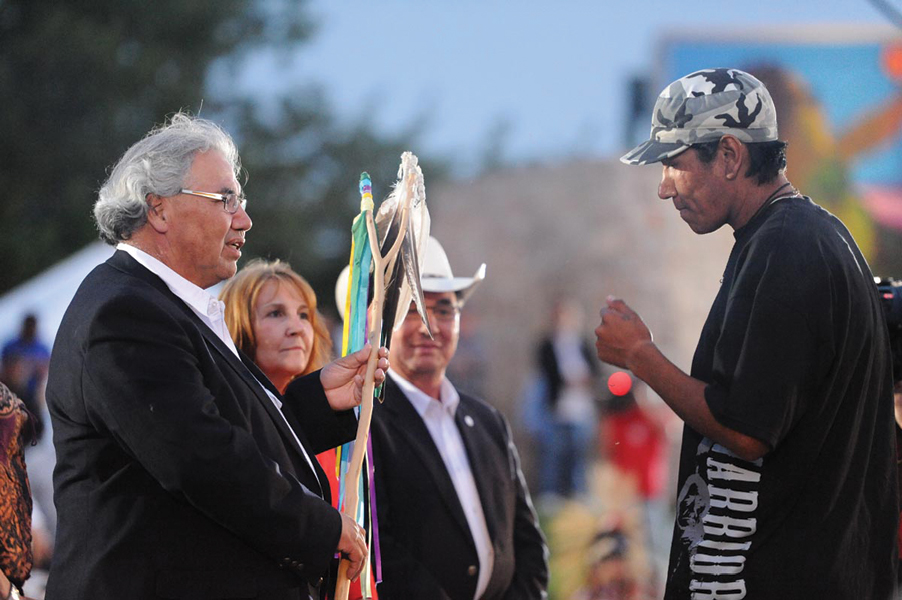
Photo by Cattroll Photo Associates
TRC issues call to action
The Truth and Reconciliation Commission of Canada (TRC) released its much-anticipated findings at the Commission’s closing events in Ottawa today.
The findings, which incorporate six years of research and thousands of witness statements, reveal the full impact that Residential Schools in Canada had on Survivors and their families. The statements, documents and other materials gathered by the TRC will now be preserved at the National Centre for Truth and Reconciliation (NCTR), located on the campus of the University of Manitoba.
“The release of this report and the recommendations it contains will have a lasting impact on our country as together, we pursue the process of reconciliation and build a new relationship between Indigenous and non-Indigenous peoples,” said University of Manitoba President David Barnard, who was present at the event in Ottawa. “As the home to the Centre, our University has a deep commitment to the reconciliation process. We will uphold the principles of reconciliation identified by the TRC as we move forward in this significant partnership.
As part of its findings, the Commission released 94 calls to action, including a call for the Government of Canada to commit to making a funding contribution of $10 million over seven years to the NCTR. The report also called for all provincial, territorial, municipal and community archives to work collaboratively with the Centre and to identify and provide all copies of records related to the Residential Schools legacy to the NCTR.
“Over the past three days, we’ve heard the Commissioners repeat time and again the importance of involving all Canadians and every aspect of Canadian society in the reconciliation process,” said NCTR Director Ry Moran before participating in a panel discussion at the closing events (read his Globe and Mail op-ed here). “These recommendations offer a good starting point in taking that call and turning it into action.”
The TRC’s recommendations also call for the federal government, through the Social Sciences and Humanities Research Council (SSHRC), to work with the Centre and Indigenous peoples and educators to establish a national research program with multi-year funding to advance understanding of reconciliation.
“We have said from the beginning that we are much more than just an archive, that we are a progressive and innovative thought-leader, and initiatives like this research program would prove that,” Moran said. “I sincerely hope the government takes up this recommendation and demonstrates real leadership on reconciliation.”
The Commission also called for the Centre to take over the role of developing and maintaining the National Residential School Student Death Register. During the delivery of the report, TRC Chair Justice Murray Sinclair estimated that as many as 6,000 children died as students of Residential Schools, and that many of those deaths remain unaccounted for.
The closing events of the TRC are taking place in Ottawa, and continue through Wednesday. The findings were delivered Tuesday morning by Commissioners Justice Sinclair, Marie Wilson and Wilton Littlechild.
The NCTR is currently operating at the University of Manitoba, and is planning a grand opening in the fall.
The NCTR is part of the University of Manitoba’s overall commitment to Creating Pathways to Indigenous Achievement as a strategic priority, and to working with partners to make Manitoba the national centre for Indigenous education and research.
Research at the University of Manitoba is partially supported by funding from the Government of Canada Research Support Fund.






